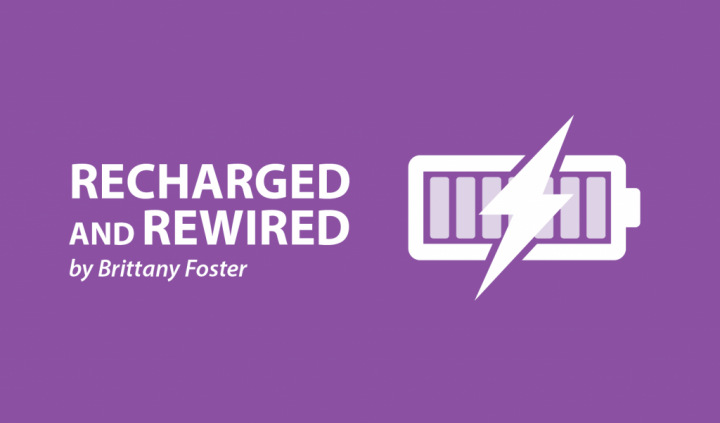Managing Chronic Illness Taught Me that Vulnerability Is a Sign of Bravery
Written by |

For most of my life, “being brave” meant that I had to be tough. For me, this looked like hiding my true feelings with a smile, fighting tears when experiencing pain, learning to just live with the physical feelings I was experiencing, and complaining only when I couldn’t stand how I was feeling anymore.
No one in my life told me this is bravery — I came to that conclusion on my own. When I endured physical discomfort without much emotional distress, I received comments about my “strength” from doctors, nurses, family members, and friends. “You’re so brave,” they said.
When I was younger and trying to figure out how to be strong through testing, surgeries, and procedures, I never thought it was a sign of strength to express my most vulnerable emotions. But I now realize that vulnerability — crying when I need to, feeling my strongest emotions, talking about them openly, or expressing them through writing — is a true sign of strength and bravery.
While managing pulmonary hypertension, I need reminders that it’s OK to cry and express how I truly feel. Acknowledging symptoms in the moment helps me manage both my physical and mental health. Allowing myself to cry when I’m uncomfortable — and feel my pain, discomfort, shortness of breath, and all the other physical symptoms that go along with this illness — makes it seem more manageable. Taking this disease one symptom at a time gives me more control.
When I disguised how uncomfortable I was, this only made my physical symptoms worse. It heightened anxiety about pain and left me questioning, “What is going on with me?” When I let it build to the worst possible level, I became overwhelmed at how many sensations I felt at once. The feeling of physical symptoms attacking me easily led to feelings of hopelessness, anger, frustration, and sadness. All of these emotions flooded me at once. In these moments, I felt I had no control over my body or mind.
Not only is it important to express my feelings about physical symptoms, but it’s also equally important to talk about how I’m mentally feeling. If I keep feelings of anger toward my body to myself, it externally manifests. I become angry toward those I love and care about, and I blame myself and become self-critical. It’s so important to find ways to manage the array of emotions experienced on a daily basis.
It’s extremely difficult to be vulnerable and let others know how I am feeling inside, but it’s crucial to managing this illness. I find it helpful to process my emotions in therapy and to discuss what I’m going through with my support system. Chronic illness comes with many difficult emotions that sometimes might seem impossible to process. There are days when anxiety gets the best of me, and there are days when I am overcome with sadness. I feel depressed and hopeless.
When I was younger, I never guessed that “crying it out” would make me feel so refreshed. I never thought that sharing my physical symptoms, talking about my emotions, and admitting to difficult mental health days was a sign of strength. Looking back, it’s easy to see that the years I spent trying to hide how I was physically or mentally feeling only made me suffer even more.
Talking about what bothers me is cleansing, and allows me to gain more control over my body. Some days, I can manage symptoms with a smile on my face. Other days, there is comfort in knowing that I can cry when I need to, and that I can express my anger and feelings of defeat. Recognizing physical symptoms and mental health changes when they arise makes it easier for me to keep pushing forward.
***
Note: Pulmonary Hypertension News is strictly a news and information website about the disease. It does not provide medical advice, diagnosis, or treatment. This content is not intended to be a substitute for professional medical advice, diagnosis, or treatment. Always seek the advice of your physician or other qualified health provider with any questions you may have regarding a medical condition. Never disregard professional medical advice or delay in seeking it because of something you have read on this website. The opinions expressed in this column are not those of Pulmonary Hypertension News or its parent company, Bionews Services, and are intended to spark discussion about issues pertaining to pulmonary hypertension.





Erika
This hit me right in the feels. Thank you.
Brittany Foster
Thank you for reading my post ! I'm glad you caught some feels from reading it. I love when people are able to emotionally connect to my writing. :)
Geraldine
Thanks for that Brittany. I emotionally connected with your post. I never say how unwell I feel as apart from worrying about upsetting my family I see it as a weakness and that is not what I want to convey. It is bad not to " get it off your chest", as they say. I must try harder now to be more honest regarding how I really feel. It will not find it easy though.
ann b wall
so often in our culture we ignore that the body, mind and soul are connected. Thank you for sharing a truth that is universal.
JUDI SVENDSEN
Thanks for all the good information you put out it's quite helpful at times. I have CTEPH so I keep up with the most recently posted news. Keep it up.
Thanks, Judi
Kim Margowski
This is exactly how I've been feeling. As just two months ago I was diagnosed with PAH after a year's worth of illness and no breath. They say it's less than 18 months my heart will give out. How to handle this is so confusing than sounding like poor me and that's not at all how I really feel I want to be brave! Thank you for your article I so needed it.